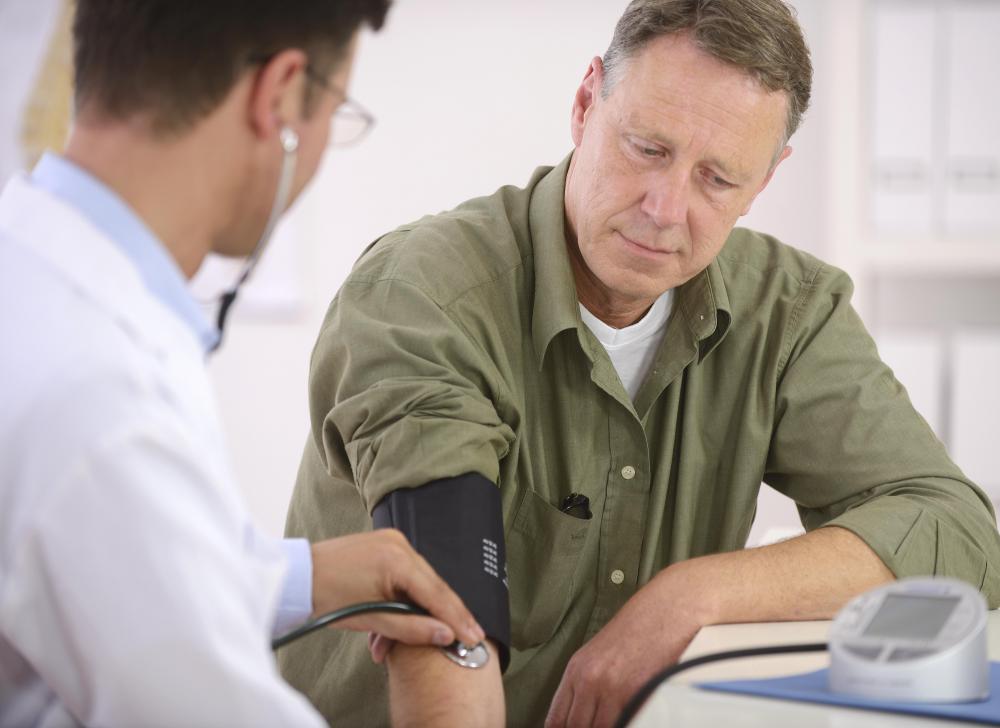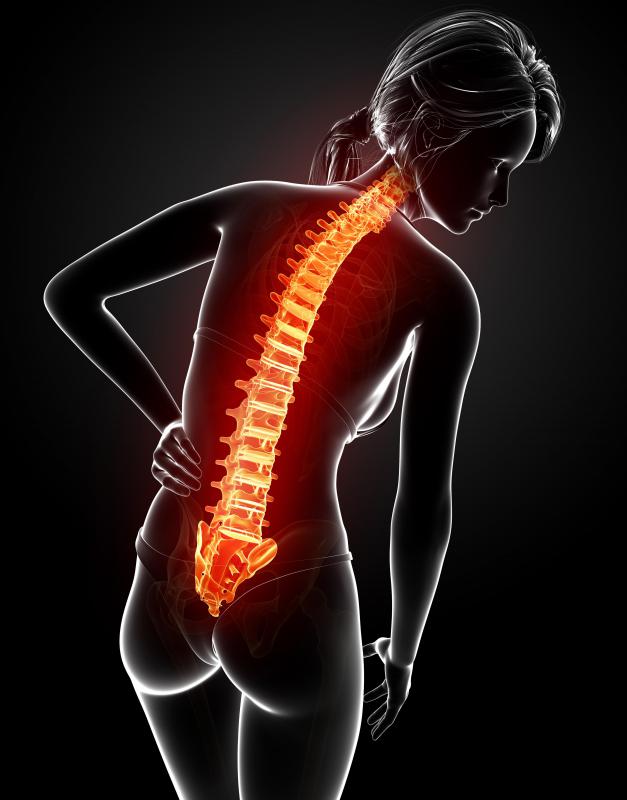At WiseGEEK, we're committed to delivering accurate, trustworthy information. Our expert-authored content is rigorously fact-checked and sourced from credible authorities. Discover how we uphold the highest standards in providing you with reliable knowledge.
What Is Neurogenic Shock?
Neurogenic shock is a drop in blood pressure caused by central nervous system injuries. It needs to be promptly treated because it can be fatal if not identified and addressed quickly, and is a known risk of brain and spinal cord injuries. People in treatment for such conditions may be monitored closely for indicators of shock to make it possible to provide a rapid intervention if necessary. Once the shock is addressed and the patient is stabilized, treatment for the injury can help prevent the risk of further complications.
In patients with this complication, the signals that normally regulate the dilation and contraction of the blood vessels aren’t normal. The body tells the blood vessels to relax, which allows the blood pressure to drop because there is less resistance. Circulation can become impaired and the patient could experience hypothermia caused by heat loss because the blood doesn’t circulate properly. Some patients in a state of neurogenic shock also develop bradycardia, where the heart rate slows.

Several measures can be used to address neurogenic shock. The first is the administration of fluids to increase blood pressure by raising the total volume of fluid in circulation, which is especially important if the patient lost fluids during an accident or surgery. In addition, the patient’s airway may need to be secured with intubation and mechanical ventilation if the patient has trouble breathing. Medications can regulate the heart rate if the patient shows signs of bradycardia.

Careful evaluation of the brain and spinal cord is critical to locate the injury and determine its extent. This can dictate the course of treatment, as the patient may need additional interventions to prevent new complications. Concerns about such injuries dictate the handling of patients with suspected spinal cord or brain damage in the wake of accidents; emergency medical personnel are trained to protect the head and neck in particular, and to evaluate the patient for signs of neurogenic shock. There are also worries about things like administering fluids, which could contribute to swelling in the skull and cause complications.

If someone who has recently experienced a brain or spinal cord injury develops symptoms like pallor, fatigue, and dizziness, they may be signs of neurogenic shock. The patient should be taken to a medical facility for evaluation and treatment. It is also advisable to receive medical attention for any suspected central nervous system injury at the time it occurs, even if it seems minor, as early identification and treatment can improve the patient’s outcome.
AS FEATURED ON:
AS FEATURED ON:















Discuss this Article
Post your comments